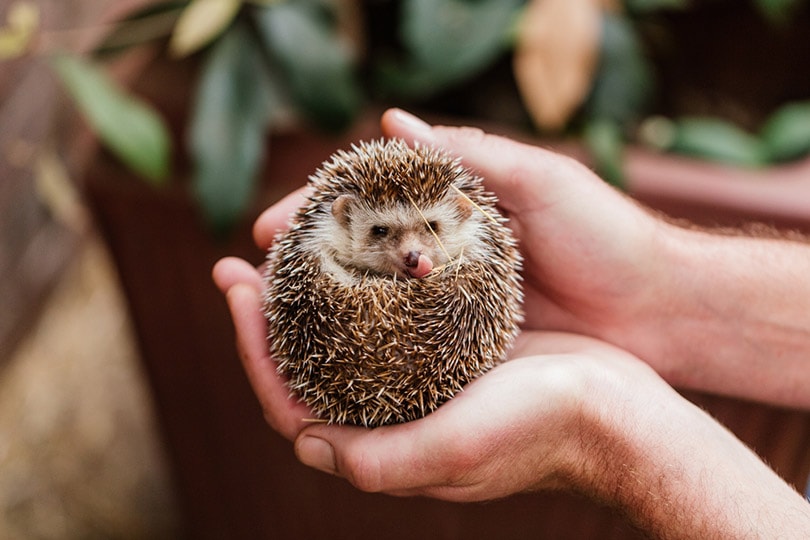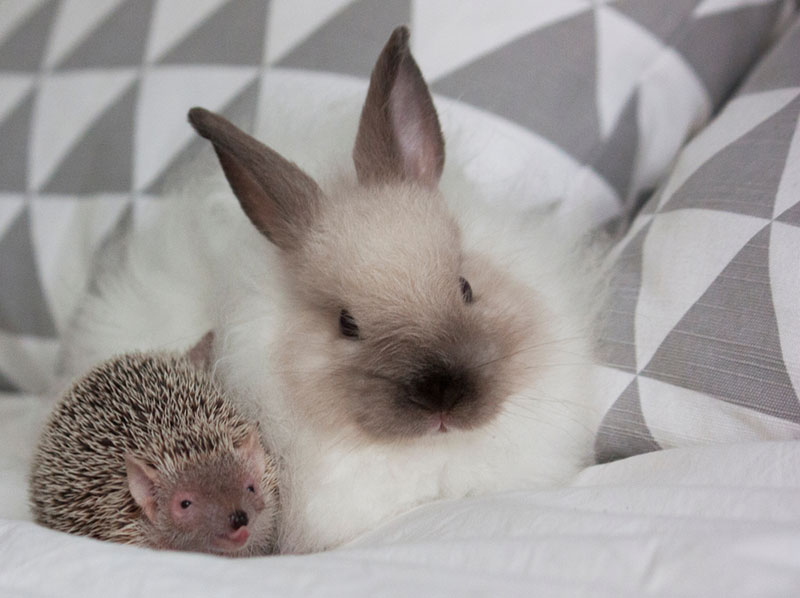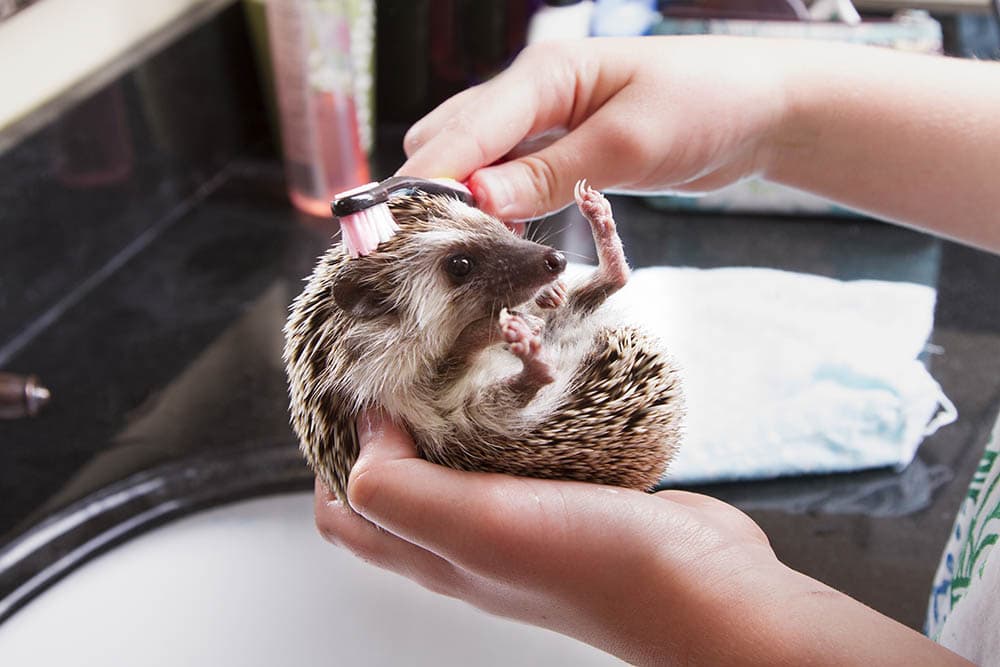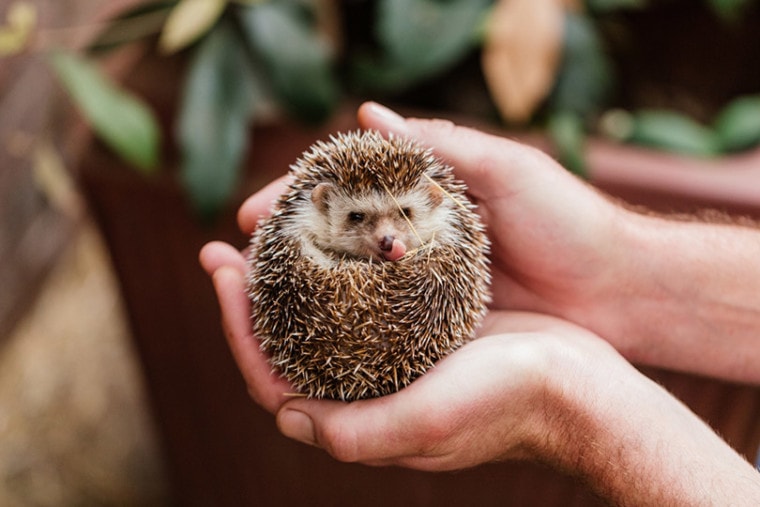
Click to Skip Ahead
If you’re a hedgehog owner, you know how much they like to eat. These little creatures usually eat at night, and if your hedgehog is not eating at all, there may be cause for alarm.
Hedgehogs as pets can live 4 to 6 years in captivity, but to make it that long, they require a healthy diet and a healthy environment.
A few factors could be the cause as to why your hedgie is not eating. In this article, we’ll look at the possible factors in depth so that you can get your spiny friend back on track.
The 6 Reasons Your Hedgehog Is Not Eating
1. Change In Environment
If you have just brought your hedgie home, then the change in its environment may be the culprit, and it’s a common reason why a hedgie may not eat right away. A hedgie may skip eating a time or two when placed in a new and unfamiliar place, and as time passes, your hedgie should get more comfortable and have an appetite. In the beginning, they will probably explore their new surroundings, which means they won’t make the time to eat.
A hedgehog should not go more than three days without food and water, or else it could develop fatty liver disease. Ensuring that your hedgie has access to food and water at all times is extremely important. You may want to get your hedgie acclimated to its new environment first before placing a running wheel in its cage, too, as the wheel may be too much of a distraction initially.
When looking at a particular hedgehog in a pet store, ask the staff what its favorite treat is and be sure to have that item on hand. Using their favorite food is a good way to entice them to eat. You can also try feeding baby food designed specifically for hedgehogs for the first couple of days.
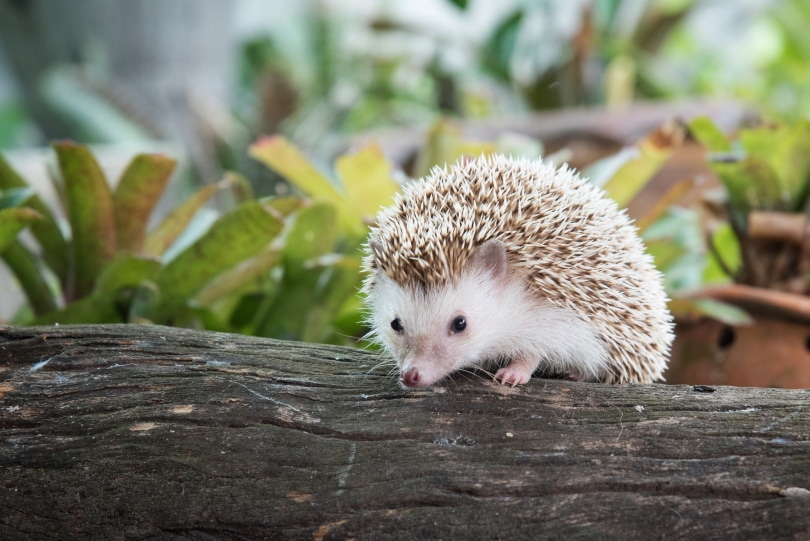
2. Change In Diet
If you have made a change to your hedgie’s food, that may be the cause; your hedgie may simply dislike the food and refuse to eat it. When buying a hedgehog, stick with whatever food the pet store was feeding, especially if the hedgehog was doing well on the food.
Feeding high-quality hedgehog food is essential in keeping your hedgie healthy. Hedgehogs require a high protein and low-fat diet. When buying food, ensure the food has all the healthy components. You can also feed your hedgie dry cat food because, according to experts, cat food has all of the necessary ingredients your hedgie requires. Try to avoid wet cat food because it does not contain as much fiber as dry kibble.
Always avoid giving your hedgie foods that are on the no-no list, such as grapes, raisins, citrus fruits, avocado, tomatoes, dried fruits, or processed meats.
3. Cage Temperature
If the temperature is not set at an ideal range, your hedgehog may stop eating. Hedgehogs are sensitive to fluctuations in temperature, and inconsistent temps may provoke your hedgie to go into a hibernation-type state, which means it will stop eating.
The ideal temperature range is 75°F to 85°F, but they can tolerate temps between 72°F and 90°F.
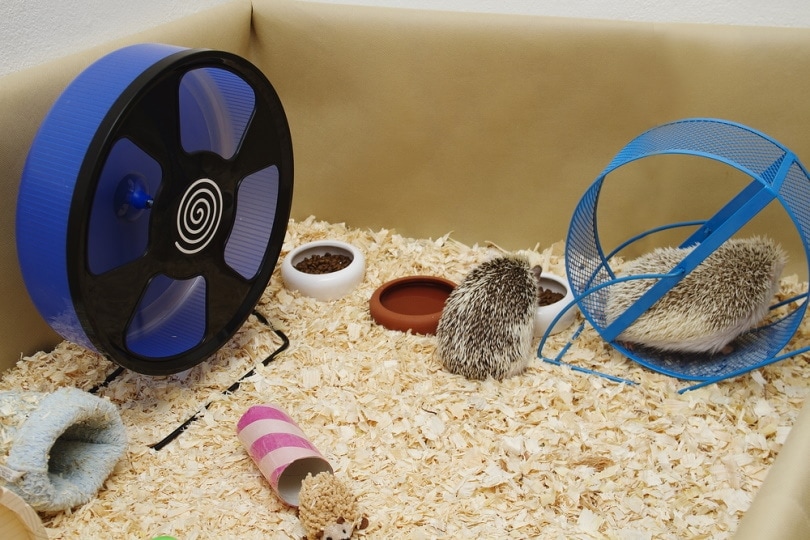
4. Loneliness
It may come as a surprise, but hedgehogs can get lonely, which can result in not eating. They don’t get lonely from being alone without another hedgehog companion but rather from you, their owner, being absent. Hedgehogs are solitary animals by nature and usually are only around other hedgehogs when mating.
Hedgehogs are not typically affectionate, but with time, they can come to trust you and bond with you. If they get used to eating from your hand or a syringe, they may become sad and lonely when you’re not around.
5. Poor Water Quality
If your hedgie is not eating, take a look at the water source. If the water bottle in its cage is clogged, your hedgie will get dehydrated and stop eating. It’s also a good idea to use high-filtered water or bottled water. Well water will taste different to your hedgie, and it may turn its nose up and not drink. You can also place a water dish in its cage to ensure it has another water source.

6. Injury or Illness
Hedgehogs that are sick or have an injury will not eat. If you’ve checked the above possible reasons and cannot pinpoint the problem, you’ll need to contact your veterinarian immediately.
Hedgies are prone to certain diseases that can be fatal if left untreated, such as heart disease, respiratory disease, neurological disease, gastrointestinal disease, and cancer. Most of the time, a hedgehog will not show any symptoms other than not eating because they can hide illnesses very well. As a rule of thumb, when in doubt, always contact your veterinarian.
 How To Get Your Hedgehog To Eat
How To Get Your Hedgehog To Eat
If your hedgie is not eating, it could be something it ate. Hedgehogs can live 4 to 6 years if fed well and love special treats, such as pineapple or spinach, but when you give your hedgie such foods, ensure you cut the food into small pieces and only feed sparingly. Fruits contain sugar, and too much could cause your hedgie to get sick. You can also try a syringe filled with its favorite treat or baby food to entice eating.
Use Caution When Feeding Insects
Hedgehogs love insects, such as crickets and mealworms. Insects contain chitin, which is the main part of the exoskeleton of insects. Chitin contains fiber and is vital in the overall health of your hedgie. Hedgehog food has this ingredient, but if you ever want to buy live insects for your hedgie as a treat, buying from a pet store with hedgehog knowledge is the safest way. Insects from bait shops may have pesticides on them, which will definitely make your hedgie sick.
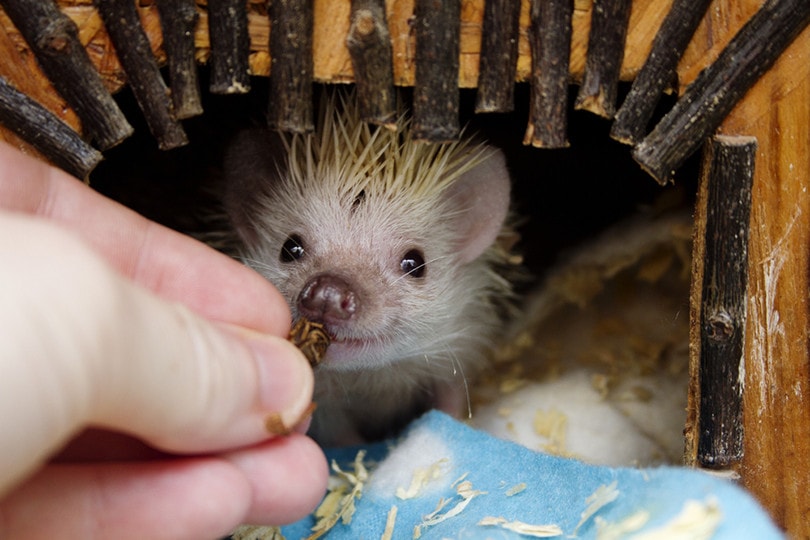
Summary
Owning a hedgehog takes some work but can be very rewarding. You have to ensure its cage is set at the appropriate temperatures and that they have access to fresh water at all times. Never feed your hedgie toxic foods, and when in doubt, always consult your veterinarian if your hedgie is not eating or drinking.
Related:
- Why Do Hedgehogs Burrow? 5 Possible Reasons
- How Long Are Hedgehogs Pregnant? Hedgehog Pregnancy Explained
- How to Get Rid of Hedgehog Smell (7 Ideas and Tips)
Featured Image Credit: Julia Jane, Shutterstock

